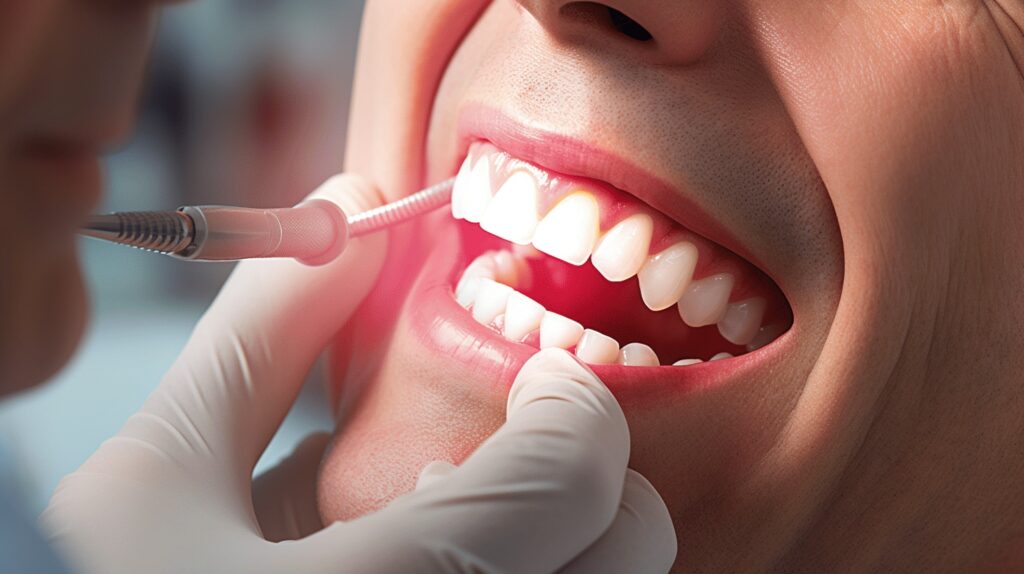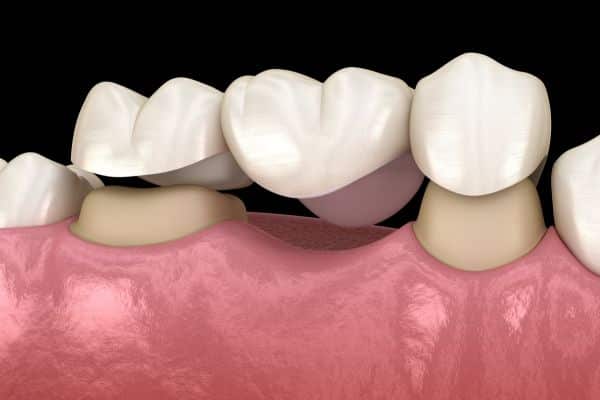Hello there, dental health enthusiasts, and those who are simply inquisitive about dental health. 😃
We’re delighted you’ve joined us on this exploration about handling lost fillings or crowns. Now, we’ve all had moments where we’ve bitten down on a delicious piece of food, only to feel that dreaded crunch that isn’t supposed to be there.
Then, the realization hits – a lost filling or crown. Gulp! 🙊 Fear not though, we’ve got your back.
This article aims to demystify the world of fillings and crowns. We’ll dive deep into dental visits, reasons why people avoid them, and how untreated dental caries play into this.
Additionally, we’ll explore the global impact of dental conditions, making this a round trip from the individual right up to the broad, worldwide scenario.
So, hop in and get comfy as we navigate through this dental journey together.
Table of Contents
Untreated Dental Caries
Dental caries, also known as cavities, are a common ailment that, when left untreated, can escalate to dental emergencies.
Our findings reveal that 13.2% of children aged 5-19 and a startling 25.9% of adults aged 20-44 have untreated dental caries.
These individuals are not only contending with painful dental issues but are also at risk for more severe complications, like infections or abscesses, that can lead to those unexpected emergency room visits. 😟
To prevent these situations, knowing when to seek immediate attention for dental issues is key! Our Emergency Dental Care page offers valuable insights about recognizing serious dental symptoms, thereby empowering you to make informed decisions.
Although these figures may seem overwhelming, remember, awareness is the first step towards resolution. By understanding the prevalence of dental emergencies and untreated caries, we equip ourselves with the knowledge to be proactive about our dental health. 😄 🦷
Commonality of Filling or Crown Loss
No one wants to bite into a crispy apple 🍎 or enjoy their morning cup of coffee ☕ only to find a hard piece that doesn’t belong.
Discovering you’ve lost a filling or crown may feel like a dietary disaster, but you’re not alone! Losing a filling or crown is a more common occurrence than you may think.
This dental dilemma can be caused by a variety of reasons, such as natural teeth wear and tear, grinding or clenching your teeth, or even consuming sticky or hard foods.
Yes, even that seemingly harmless caramel candy 🍬 or popcorn 🍿 sitting on your countertop can become culprits!
However, an important thing to remember is that if this happens to you, it’s not the end of the world. Stay calm, remove any pieces from your mouth to prevent choking or additional damage, and schedule an appointment with your dentist at the earliest.
- Evaluate the Situation: Look in the mirror. Is it a filling or a crown? Knowing the difference will help you when speaking with your dentist.
- Safeguard the Area: If the tooth is sensitive, you can cover it with toothpaste or dental wax to protect it until you can see your dentist.
- Schedule an Appointment: Reach out to your dentist and routinely check-ups could help prevent such situations.
What makes these issues so common?
Maybe it’s that new popcorn trend you can’t get enough of, or perhaps it’s years of late-night teeth grinding.
“Each mouth is unique, and there’s no one-size-fits-all answer. Understanding your dental history, habits, and health is the key to taking good care of your teeth and preventing issues like filling or crown loss.”
So while losing a filling or crown is something most of us will likely encounter at some point, it’s far from a unique event. The best course of action is always to consult with your dental professionals and not panic.
After all, dentistry has come a long way in addressing these concerns with more sophistication and comfort. Remember, your smile is meant to last a lifetime, so ensure it gets the best care it deserves!
Demand for Dental Visits
How many times have you thought about seeing a dentist in the past year?
For many of us, the answer might be more often than we’d like to admit. Maintaining your dental health is crucial, not just for a radiant smile but also for overall health. So let’s talk about the demand for dental visits.
According to recent stats, roughly 75% of American adults plan to visit a dentist in the upcoming year—a testament to the growing understanding of the importance of dental health. But why the sudden surge in interest?
One reason is the growing concern around oral health. As we become more conscious about our well-being, we understand that dental health shouldn’t be taken lightly. More people are looking for professional help for routine check-ups and preventative treatments 🦷.
If we look at the wider picture, we can see it as:
- Regular Checkups: Routine dental checkups are crucial for maintaining oral health, identifying issues early, and treating them before they escalate.
- Preventive treatments: Preventive treatments like fluoride application and sealants can help avoid common dental health problems like cavities and gum disease.
- Aesthetic Purposes: With the rise of social media, there’s a growing demand for cosmetic dentistry—people now want an Instagram-perfect smile.
The bottom line?
It seems that more Americans are taking control of their dental health, feeding the demand for dental visits. But remember, it’s not about frequent visits but regular and consistent dental hygiene and care that will keep your smile radiant and your overall health in check.
So shine on, America, one tooth at a time! 😁
Preventative Measures and Treatment for Lost Fillings or Crowns
When it comes to maintaining perfect oral health, lazy afternoons and cozy nights often take a back seat to unexpected dental issues such as lost fillings or crowns.
In this section, we delve into the nitty-gritty of what makes preventative dentistry a must-have tool in your oral health armory.
Sure, the dentist might be a bit scary.👩⚕️ But the benefits you reap – priceless.
Preventing potential oral health issues means you spend less time in the dreaded dentist’s chair and more time enjoying life’s little moments.
And what’s more, if you are a busy professional barely managing time between work and home, you will find our guidelines on Preventative Dentistry quite handy.
What can you do if you find yourself with lost fillings or crowns, though? 🤔
First things first. Don’t panic. It sounds scary, but it’s not always as bad as it seems.
Here’s what to do:
- Removal of Debris: Carefully remove any pieces of the crown or filling, if possible. Rinse your mouth using warm water.
- Use Dental Wax: If you cannot visit a dentist right away, cover the tooth area with over-the-counter dental wax or even sugar-free gum.
- Avoid Certain Foods: Keep away from hot or cold foods as your tooth may be sensitive.
- See a Dentist ASAP: Lastly, arrange an appointment with your dentist as soon as you can.
Treating lost fillings or crowns promptly can help prevent further complications, reduce discomfort, and ensure your oral health is on the right track.
And while such incidents might put a temporary dent in your day, remember that prevention is always better than cure.
The essence of it all? Regular check-ups with your dentist. It’s like that old saying goes: An ounce of prevention is worth a pound of cure!
So pop into the dentist’s chair before an issue arises. Your future self will thank you with a bright, healthy smile.😃
Global Impact and Presence of Dental Conditions
When it comes to overall health, we tend to overlook a critical component – our oral health.
However, dental conditions that we deal with on a daily basis have a far-reaching and profound global impact.
This overarching presence can result from various ubiquitous conditions such as untreated dental caries.
Global Presence of Untreated Dental Caries
Untreated dental caries, commonly known as tooth decay, is a pressing concern worldwide.
Believe it or not, 💭 this singular dental condition impacts nearly 2.5 billion individuals across the globe.
This astounding figure underscores the global extent and presence of untreated dental caries, making it the most common dental condition globally. And what makes it such a prevalent issue? Let’s dive deeper! 🏊♀️
Much of this global presence can be attributed to various contributing factors.
For instance, many regions lack access to adequate dental care, making preventative measures and treatment difficult to obtain.
Additionally, the consumption of sugar-packed drinks and snacks has skyrocketed 🚀, causing a spike in cases of tooth decay.
To stave off this global health concern, it’s crucial to incorporate preventative measures into our daily lives, like:
- Reducing the intake of sugary snacks and drinks 🍭
- Brushing teeth twice a day, with fluoride toothpaste 🦷
- Regular dental checkups and cleanings 🩺
- Learning about the importance of oral health through educational programs 📚
By taking these steps, we can begin to chip away at the staggering number of untreated dental caries cases worldwide.
To conclude, untreated dental caries might seem like a minor problem on the surface.
However, this seemingly “small issue” is a massive burden, affecting billions of individuals worldwide. Let’s face it, our journey towards better global health begins with a smile – a healthy one, indeed! 😃
Through consistent efforts and global cooperation, we can bring about a sweeping change in the prevalence of this dental condition and create a world where dental health isn’t a privilege, but a global standard! 🌍💫
Conclusion
When it comes to the complexities of dental health, losing a filling or a crown can be daunting.
However, having an understanding of such dental emergencies and knowing how to address them effectively can not only save you pain but also safeguard your overall oral health.
Remember, professional help is always the best choice for handling dental emergencies. With a dedicated team of experts, advanced technology, and a welcoming environment, Wilshire Smile Studio is committed to care for such emergencies.
We understand that your smile matters and we’re here to ensure its vibrancy.
Always reach out to us in case of any dental emergencies, and don’t forget – the best strategy against dental emergencies is following a proper preventive dental care routine.
Have regular dental checkups to identify and rectify potential threats before they escalate into emergencies.
Though providing information here is critical, our goal is your well-being.
Visit us at Wilshire Smile Studio and enjoy personalized, affordable care for a healthier, radiant smile. Keep smiling!
Secure your oral health today by booking a free consultation with us online or calling (323) DENTIST (323-336-8478)
Frequently Asked Questions
1. What should I do if I lose a filling or crown?
If you lose a filling or crown, it is important to see a dentist as soon as possible. In the meantime, you can temporarily fill the cavity with dental cement or toothpaste to protect the exposed area.
2. Is losing a filling or crown a dental emergency?
Losing a filling or crown can be considered a dental emergency if it causes pain, discomfort, or sensitivity. It is best to contact your dentist and explain the situation to determine if immediate attention is needed.
3. Can I use over-the-counter dental cement to temporarily fix a lost filling or crown?
Yes, over-the-counter dental cement can be used to temporarily fill a cavity or secure a loose crown until you can see a dentist. However, it is crucial to seek professional dental care as soon as possible for a proper and long-term solution.
4. Will I need a new filling or crown if I lose one?
In most cases, a lost filling or crown will require a replacement. Your dentist will assess the situation and determine the best course of action to restore your tooth and prevent further damage.
5. How can I prevent future loss of fillings or crowns?
To prevent the loss of fillings or crowns, practice good oral hygiene by brushing and flossing regularly. Avoid chewing on hard or sticky foods, and schedule regular dental check-ups to ensure the integrity of existing dental work.






